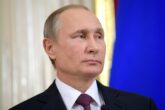June 30, 2021
The Stakes are High
As German Chancellor Angela Merkel prepares to step down after almost 16 years in office, transatlantic relations, and especially US-Germany relations, remain uncertain. The administration of US President Joe Biden has made several overtures to Europe and to Merkel specifically in an effort to get relations back on track. In addition to rejoining the Paris Climate Agreement, the World Health Organization, and the UN Human Rights Council, the Biden administration has re-started talks to bring Iran back into compliance with the international nuclear agreement, known as Joint Comprehensive Plan of Action, or JCPOA. (Iran began to exceed the limits to uranium enrichment imposed by the deal after former President Donald Trump ordered the US withdrawal from JCPOA in 2018). To woo Merkel, President Biden reversed Trump’s decision to partially withdraw US troops from Germany and waived sanctions on some European companies involved with the controversial gas pipeline Nord Stream 2—a step that drew significant criticism from the US Congress and other domestic constituencies.
Underneath the veneer of goodwill remain persistent European concerns about the reliability of the United States as a partner, threatening to weaken transatlantic cooperation.
The Biden administration never expected that such steps would quickly repair relations after four years of Trump, but progress in revitalizing the relationship has proven more difficult than anticipated. The series of summits with NATO and the European Union were seen as a success on both sides of the Atlantic and were a step in the right direction. The message was clear: America is back and committed to its allies. Yet, questions remain about what tangible progress will come of the summits and where US-Europe relations will go from here. Underneath the veneer of goodwill remain persistent European concerns about the reliability of the United States as a partner, threatening to weaken transatlantic cooperation.
Read the full article from Internationale Politik Quarterly.
More from CNAS
-
The Eurasian Century: Hot Wars, Cold Wars, and the Making of the Modern World with Hal Brands
For more than 100 years, the continent of Eurasia has played a central role in global geopolitics. In the 20th century, numerous authoritarian powers from Germany under Kaiser...
By Andrea Kendall-Taylor, Jim Townsend & Hal Brands
-
Trump Wants a Nuclear Deal. Can He Be the Ultimate Negotiator?
Should Trump negotiate with Russia’s Putin, and what terms should he pursue if US and global security is to be enhanced?...
By Jon B. Wolfsthal
-
Trump Turning Washington Crash into ‘Bar Room Talk’ Will Turn People Away | Jim Townsend
Trump's unchecked claims that the DC crash was caused by diversity quotas should "turn people away" from him, says Jim Townsend, an adjunct senior fellow in the CNAS Transatla...
By Jim Townsend
-
Putin’s Fight Won’t End With Ukraine
In an essay for Foreign Affairs, titled “Putin’s Point of No Return,” Andrea Kendall-Taylor, senior fellow and director of the Transatlantic Security Program at the Center for...
By Andrea Kendall-Taylor




